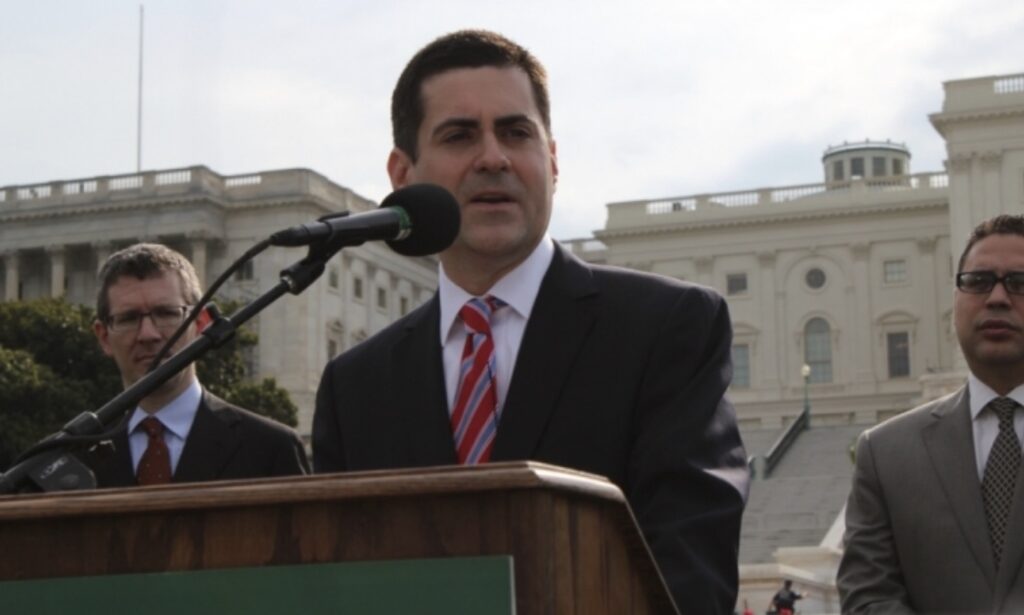[Reformation Charlotte] The Evangelical Immigration Table is a branch of the National Immigration Forum which is heavily funded by George Soros. Russell Moore, head of the Southern Baptist Ethics and Religious Liberty Commission is on the board of the Evangelical Immigration Table and is also on the Leadership Council for George Soros’ 2020 National Immigration Strategy of the National Immigration Forum. These two organizations support and promote mass immigration and amnesty for illegal immigrants using biblical-sounding language.
How many Southern Baptists actually know that their number one public representative and the most influential man in the denomination is in cahoots with George Soros? I suspect not many.
The following is from the Christian Post on September 20, 2018.
CHRISTIAN POST — Southern Baptist ethicist Russell Moore and other evangelical leaders have spoken out against the Trump administration’s recently announced reduction to the U.S. refugee cap.
Moore, president of the Southern Baptist Convention’s Ethics & Religious Liberty Commission, joined about five other leaders affiliated with the Evangelical Immigration Table in issuing statements responding the 30,000-refugee limit to the U.S. Refugee Resettlement Program in fiscal year 2019 that was announced by Secretary of State Mike Pompeo this week.
The 30,000-refugee ceiling is a reduction of 15,000 refugees from the 45,000-refugee limit set by the administration for fiscal year 2018 and is the lowest set by any president since the passing of the Refugee Act in 1980. But if 30,000 refugees were to actually resettle in the U.S. next year, it would be an increase from fiscal year 2018, in which just over 20,000 refugees have been resettled with just two weeks left until the new fiscal year (Oct. 1).
The refugee resettlement policies of the Trump administration come as the Obama administration resettled 99,183 refugees in its last full fiscal year in office. Today, there are over 25 million refugees and 68 million people displaced from their homes worldwide.
“Seeing yet another drop in refugee numbers should be a shock to the conscience of all Americans,” Moore, an author and former dean of the Southern Baptist Theological Seminary in Louisville, Kentucky, said in his statement. “One day we will be ashamed that we as a nation turned inward, and away from our great tradition of serving as a beacon of liberty to those fleeing for their lives.”
The 46-year-old Moore admits that it would be nearly impossible for the U.S. to take “unlimited numbers of refugees” but asserted that the “increasingly lower number” of refugees being resettled to the U.S. “is far below the level where America could and should be in leading the world in compassion for those in peril.”
“As a Christian, I am concerned for the well-being of all those in peril,” Moore asserted. “And I stand in solidarity with my brothers and sisters in Christ in the persecuted church, many of whom will be harmed by this closed door.”
Samuel Rodriguez, the president of the National Hispanic Christian Leadership Conference who has informally advised the Trump administration and prayed at Trump’s inauguration in January 2017, also voiced his concern.
“America has long been a beacon of freedom and safety for those fleeing persecution, including many persecuted for their Christian faith, but the proposed cap of just 30,000 refugees would mean stepping back from our historic role of global leadership,” Rodriguez, pastor of the New Season Christian Worship Center in Sacramento, California, stressed. “We can both be a secure nation and a compassionate nation, leading the world in resettling the most vulnerable refugees who have been identified and vetted abroad and ensuring due process for those who reach our country to request asylum.”
Other leaders who released statements through the Evangelical Immigration Table, a coalition of evangelical organizations advocating for immigration reform, include leaders from the National Association of Evangelicals, NAE’s humanitarian arm World Relief (one of 9 refugee resettlement organizations in the U.S.) and the Council for Christian Colleges and Universities.
[Editor’s Note: Reprinted with permission. Title changed by P&P.]











